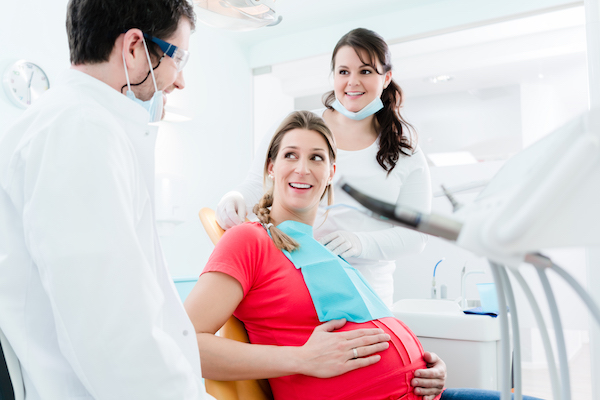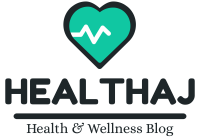
Dental care tips for pregnant women are vital for both mom and baby. Learn 9 essential, doctor-approved tips to maintain oral health during pregnancy.
Dental Care Tips For Pregnant Women: 9 Simple Habits to Protect Your Smile and Baby
Ever wondered how pregnancy affects your teeth and gums—and what you can actually do about it? You’re not alone. Pregnancy changes a lot in your body (hello, cravings and backaches). But many moms-to-be forget about dental health.
Yes, your mouth goes through its own rollercoaster. But here’s the good news—you can stay on top of it with a few smart, easy habits.
Let’s walk through everything you need to know about dental care during pregnancy. We’ll cover what to watch for, what to avoid, and how to keep both your smile and your baby safe.
Why Is Dental Care So Important During Pregnancy?
Pregnancy hormones—mainly progesterone and estrogen—don’t just affect your mood and body. They also affect your mouth. These hormonal changes can lead to:
- Swollen or bleeding gums (pregnancy gingivitis)
- Increased risk of cavities
- Higher chances of gum disease
- Tooth sensitivity or enamel wear
- Morning sickness that affects your enamel
Taking care of your oral health is directly linked to your baby’s health. Studies show that untreated gum disease may lead to premature birth or low birth weight. So yeah, it’s a big deal.
1. Don’t Skip Your Dental Appointments
Think you should avoid the dentist while pregnant? Think again.
Routine dental cleanings and checkups are totally safe during pregnancy—and they’re actually encouraged.
Pro Tip: The best time for dental work is during your second trimester (weeks 14 to 20).
If you have morning sickness early on or feel too uncomfortable later in pregnancy, that middle window is usually just right.
2. Let Your Dentist Know You’re Pregnant
Before you sit back in that chair, tell your dentist you’re expecting. Also share:
- How far along you are
- Any medications you’re taking
- Pregnancy-related symptoms (like vomiting or gum swelling)
This helps your dental team adjust treatments safely. For example, X-rays can be postponed or done with proper shielding if necessary.
3. Practice Gentle But Thorough Brushing
Pregnancy can make your gums more sensitive, so if brushing feels uncomfortable, switch to a soft-bristled toothbrush.
Here’s a basic brushing routine:
| Step | Tip |
|---|---|
| 1 | Brush twice a day (specialy before bed) |
| 2 | Use fluoride toothpaste |
| 3 | Brush gently in circular motions |
| 4 | Don’t skip your tongue—bacteria hides there too! |
Also, replace your toothbrush every 3 months or sooner if the bristles fray.
4. Don’t Forget to Floss (Yes, Even Now)
Flossing isn’t optional during pregnancy—it’s essential.
Hormonal changes can make your gums swell and bleed more. Flossing helps remove plaque between teeth and keeps your gums healthy.
Use gentle motions and consider using a floss pick or water flosser if regular floss is too tricky.
5. Rinse After Morning Sickness
Morning sickness can leave stomach acid on your teeth. This weakens enamel over time.
Here’s what to do instead of brushing right after vomiting:
- Rinse with a mix of 1 teaspoon baking soda in a glass of water
- Wait 30 minutes, then brush gently
This protects your enamel while freshening your mouth.
6. Watch What You Eat (And What Your Teeth Think About It)
Your cravings might be all over the place—but your teeth care what you eat.
Go easy on:
- Sugary snacks
- Sticky candies
- Soda or juice
Eat more of:
- Crunchy fruits and veggies
- Cheese, milk, and yogurt (rich in calcium)
- Whole grains
Pregnancy is the perfect time to adopt tooth-friendly nutrition habits. They benefit both you and baby.
7. Stay Hydrated (And Chew Sugar-Free Gum)
Water isn’t just good for your body. It helps rinse food particles from your mouth and reduce acid buildup.
And if you find yourself snacking more, chewing sugar-free gum with xylitol after meals can help prevent cavities.
8. Treat Gum Problems Early
If your gums are red, swollen, or bleed when you brush, don’t ignore it. These are signs of pregnancy gingivitis—and it won’t fix itself.
What can help?
- Warm salt water rinses (½ teaspoon salt in 1 cup warm water)
- Regular cleanings with your dentist
- Consistent brushing and flossing
If left untreated, it can progress to more serious gum disease.
9. Avoid Unnecessary Dental Procedures
Major dental treatments like whitening or cosmetic work should wait until after delivery.
Emergency care like fillings, root canals, or tooth removals are usually safe (even in the second trimester). Always consult both your dentist and OB-GYN.
Is It Safe to Get Dental X-Rays While Pregnant?
This is one of the most common questions moms-to-be ask.
Yes, dental X-rays are generally safe during pregnancy, with proper shielding. Most dentists avoid routine X-rays unless they’re absolutely necessary.
If you need an X-ray for an emergency, your dentist will use a lead apron to protect your abdomen and thyroid.
What If I Have a Dental Emergency?
Tooth pain, broken fillings, or infections shouldn’t wait—during pregnancy.
Call your dentist immediately. Delaying treatment can do more harm than good for both you and your baby.
Safe pain relief options like acetaminophen are often recommended. But always double-check with your healthcare providers.
Can Dental Issues Affect My Baby?
Yes, they can. Gum disease and oral infections during pregnancy have been linked to:
- Preterm birth
- Low birth weight
- Pre-eclampsia
- Higher risk of early childhood cavities
This is why dental care during pregnancy isn’t just about you. It’s a big part of protecting your baby’s development too.
Natural Remedies for Sensitive Teeth and Gums
If pregnancy has your gums throbbing or your teeth aching, try these natural soothers:
- Rinse with warm salt water
- Apply a cold compress to your cheek
- Drink chamomile tea (cool, not hot)
- Use a sensitivity-formula toothpaste
- Avoid hot, cold, or spicy foods
These can bring relief until your next dental visit.
How to Maintain Dental Health After Delivery
After baby arrives, your own needs often fall to the bottom of the list. But now’s the time to double down on dental habits.
Here’s a quick cheat sheet:
| Habit | Why It Matters |
|---|---|
| Schedule a postpartum dental visit | Catch up on delayed treatments |
| Brush and floss daily | Prevent long-term issues |
| Avoid sharing spoons or pacifiers | Prevent transferring cavity-causing bacteria |
| Eat balanced meals | Keep your teeth strong (and your energy up) |
Plus, if you plan to breastfeed, your body will need extra calcium—so keep up with dairy, greens, or supplements.
Final Thoughts: Your Smile Matters Just As Much As Baby’s
Pregnancy changes a lot. It’s easy to feel like your body is no longer your own—but your smile is yours. Taking care of your teeth and gums now doesn’t just prevent pain or expensive treatments—it’s one more way to take care of your little one, too.
So go ahead, book that cleaning. Brush and floss like a champ. Stay hydrated, snack smart, and trust that a few small steps can make a big difference—for both you and baby.
FAQs: Dental Care for Pregnant Women
1. Is it safe to go to the dentist while pregnant?
Yes! Regular checkups and cleanings are safe—and recommended—during pregnancy, specially during the second trimester.
2. Can pregnancy cause tooth loss or damage?
While it’s rare, untreated gum disease or decay can lead to tooth issues. Hormonal changes make your mouth more vulnerable, so care is key.
3. What if I get cavities while pregnant?
Your dentist can safely fill cavities during pregnancy. Don’t delay treatment—it can lead to infection or bigger problems down the road.
4. Should I change my toothpaste or toothbrush during pregnancy?
You may want a softer toothbrush if your gums are sensitive. Stick with fluoride toothpaste unless advised other wise.
5. Can dental problems during pregnancy affect my baby?
Yes. Untreated gum disease has been linked to preterm birth and low birth weight. Taking care of your oral health protects your baby, too.
Sources:
- American Dental Association (ADA)
- American Pregnancy Association
- Mayo Clinic
- Centers for Disease Control and Prevention (CDC)
- National Institute of Dental and Craniofacial Research (NIDCR)


